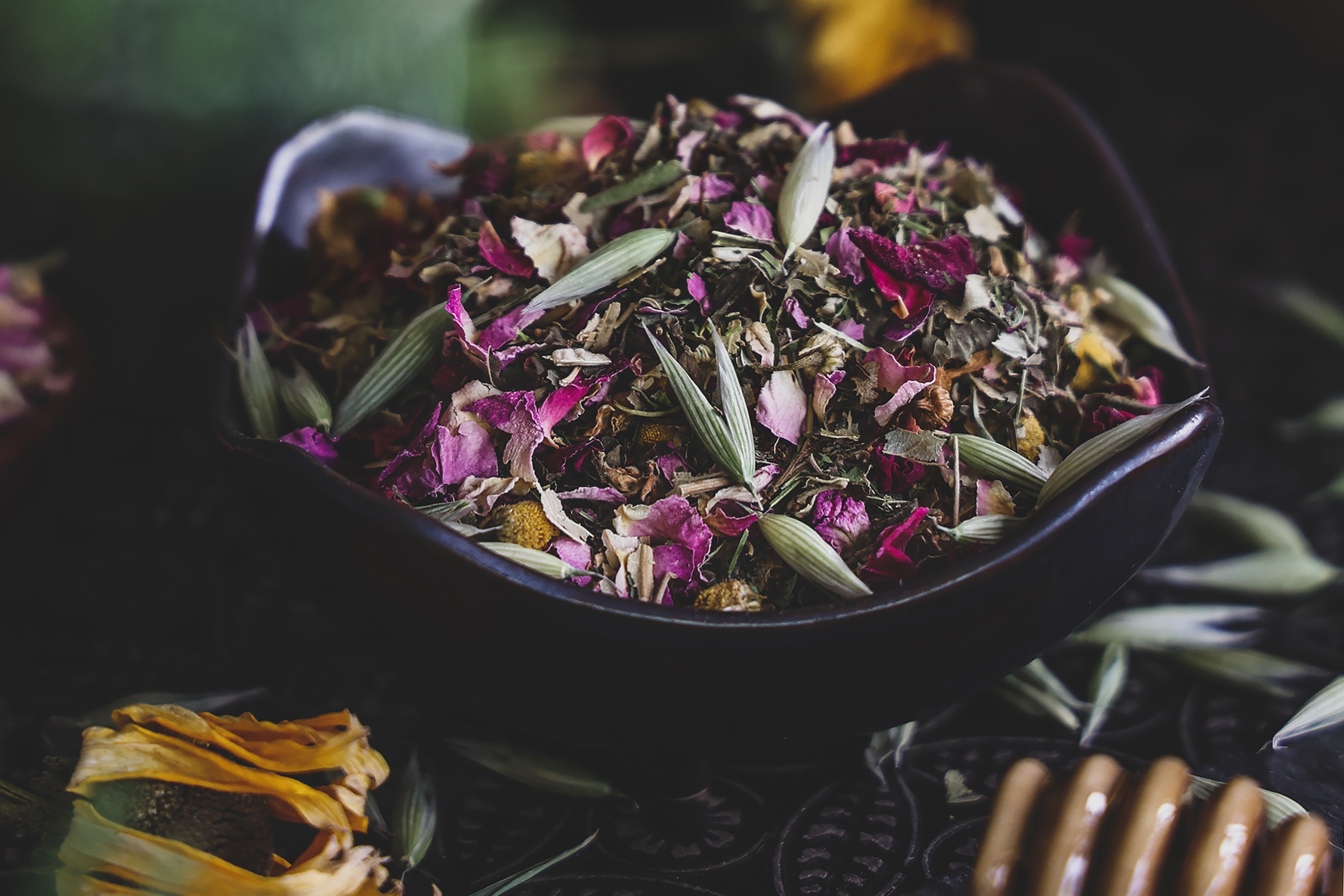
My mountains are on fire. I watch the hungry flames lick at my familiar skyline. Fire trucks zip up and down our canyon road as helicopters wheel overhead. I smell smoke, and know what comes next: weeks of gray skies raining ash, then months to years of barren blackened slopes and tree stumps where yesterday I petted my favorite sages and lingered under expansive old oaks.
This is California now, as it has always been: a landscape shaped in constant conversation with fire. Fires used to roam freely, waking serotinous seeds that wait for the fiery heat to burst open their seed cases and rejuvenate the landscape. Now humans, houses, and other anthropocentric technologies seek to dominate. Fires still burn. We suffer the repercussions of what and how we’ve created and destroyed.
As we experience earlier, longer, more unpredictable—and oftentimes more devastating—fire seasons, we collect stories, smoke, and sorrow in our chests, lungs, and bodies. Perhaps we or someone we know has lost a home, or even a loved one. Perhaps we inadvertently inhale smoke and ash that create a short-term burden on our system, which may spark long-term damage.
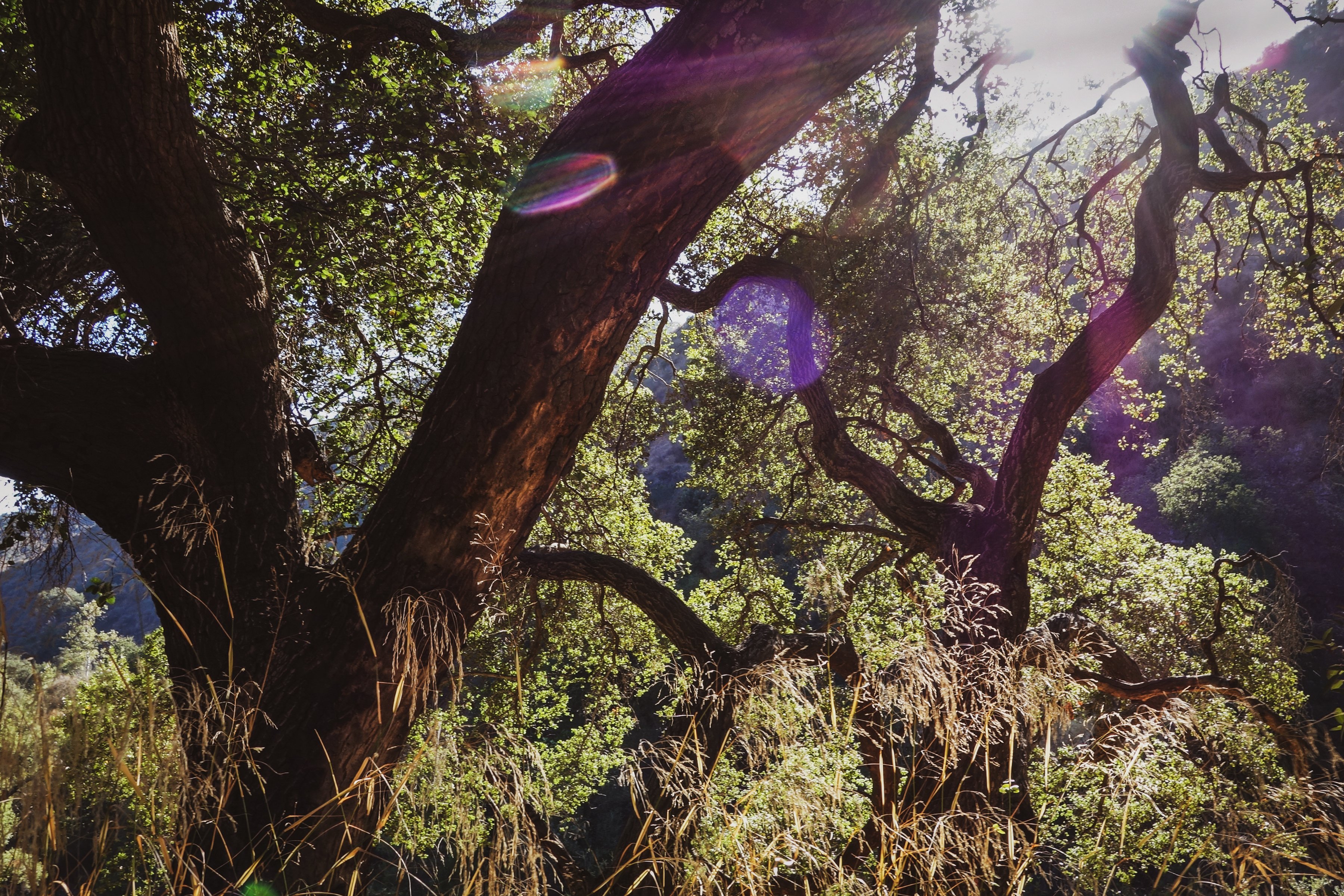
Photo courtesy of Jiling Lin.
Common Symptoms of Wildfire Smoke Inhalation
Proximity to a wildfire emergency can create fear, confusion, and other psychological manifestations of stress. Exposure to wildfire smoke can also cause physiological symptoms that impact the nervous, respiratory, integumentary, and other body systems. Symptoms may include:
- Coughing
- Headaches
- Dry skin
- Difficulty breathing
- Sinus irritation
How do we prepare and adjust to our planet’s rapidly shifting climate, which is manifest here in California and other fire-prone areas as life-giving destruction?
Prepare A Run-Bag
If you live in a fire-prone area, then prepare a run-bag of important items before the drier and hotter weather heralds fire season. See CDC guidelines and reference your local fire station for more suggestions.
If you have an indoor place to stay, then keep doors and windows closed. Maintain good air circulation with a HEPA air filter if possible, and keep your spirits up with fresh food, supportive herbs, and gentle music. Breath-focused meditations, drawing, writing, and other calming strategies can be helpful in maintaining internal equilibrium.
Eat well
Remember to hydrate extra well! Drink more water, tea, and soup to help flush and rehydrate your body. Include antioxidant-rich foods like citrus and berries. Enjoy cooling and clearing fresh fruits and vegetables like cucumbers and watermelon. Savor colorful salads and ferments, and add just a little extra salt and healthy fats. Include moistening foods like mushrooms and seaweeds in your soups, and remember to sit down and slowly enjoy your meals, even amidst potential chaos and confusion.
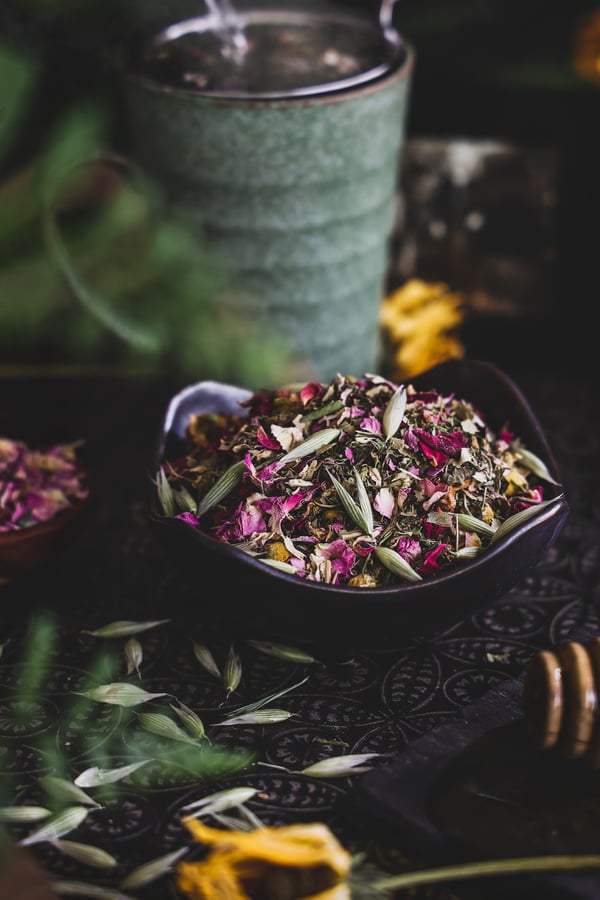
Herbs to Support Fire Response and Recovery
Focus on herbs specific to what you are experiencing, and/or body systems typically impacted for you, such as respiratory, stress, digestive, or other symptoms. For example if you tend to get a dry throat during fire season, then be prepared with ample demulcents. If fire season tends to stress you out, then be prepared with delicious nervines, or nervous system support.
Many mint family plants (Lamiaceae) are aromatic and adaptive to various purposes, such as easing tension, opening stuck nasal passages, and soothing inflamed respiration.
Mint family expectorants to help move gunk out of the throat:
- Rosemary leaves (Rosmarinus officinalis)
- Sage leaves (Salvia spp.)
- Horehound leaves (Marrubium vulgare)
Mint family nervines for soothing stress:
- Tulsi leaves (Ocimum sanctum)
- Skullcap leaves (Scutellaria spp.)
- Lemon balm leaves (Melissa officinalis)
- Lavender flowers (Lavandula spp.)
Other nervines to reduce stress:
- Oat tops (Avena sativa, Poaceae)
- Chamomile flowers (Matricaria chamomilla, Asteraceae)
- Rose petals/buds (Rosa spp., Rosaceae)
- Passionflower leaves (Passiflora spp., Passifloraceae)
Mallow family (Malvaceae) Demulcents
These can help soothe parched mucous membranes like dry skin, throat, or nose. Prepare as a cold infusion, perhaps with a little squeeze of lemon or another citrus, and some honey or maple syrup.
- Marshmallow root (Althaea officinalis, Malvaceae)
- Linden leaves (Tilia spp., Malvaceae)
- Hibiscus flowers (Hibiscus spp., Malvaceae)
Corrigent demulcents that can help unify and flavor formulas
- Licorice root (Glycyrrhiza glabra, Fabaceae)
- Cinnamon bark (Cinnamomum spp., Lauraceae)
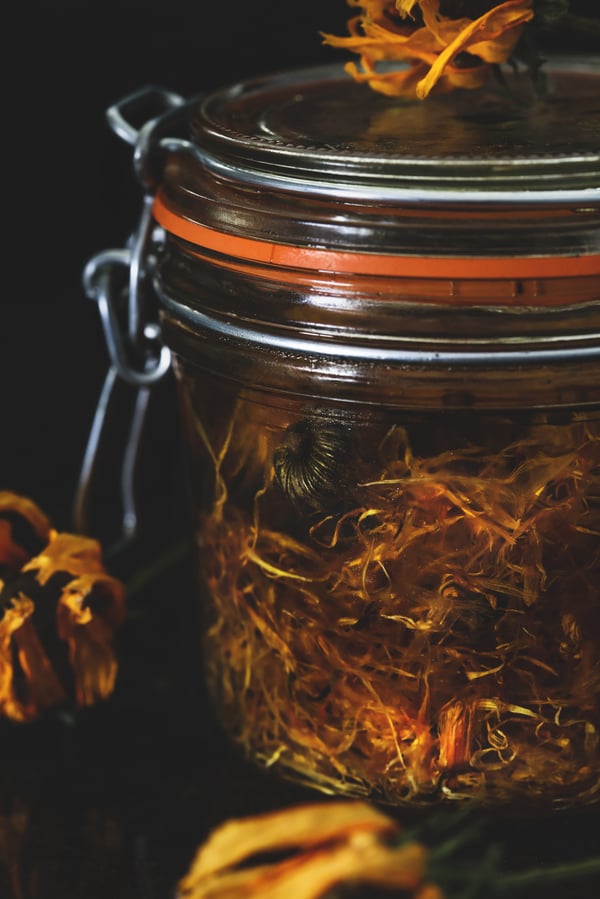
Herbal Preparations for Fire Season
Consider both internal and external applications of herbs to support your fire response and recovery process.
Internal preparations
You can take the herbs above as teas, cold infusions, tinctures, or honeys. Tinctures are easy to keep on hand for first aid and in your run-bag. Teas are particularly helpful during fire season to increase hydration and maintain small grounding rituals. You can also pack teas into your run bag if you will have access to hot water. If preparing teas ahead of time for storage, then keep in a sealed container in a cool place. Honeys are lovely for a taste of medicinally infused sweetness during likely harrowing times.
Topical Oils
Applying herb-infused oils topically not only soothes dry skin but is also a grounding ritual to help maintain a sense of normalcy when the world is on fire. Consider calming herbs like lavender and vulnerary skin-supporting herbs like calendula (Calendula officinalis, Asteraceae).
Complete your day with an herbally-infused oil massage before or after bathing, to let the oils soak in overnight.
Gently applying oil to the inside of your nose with a clean pinky finger or cotton swab before bed can be extra soothing to lubricate dry or smoky nasal passages.
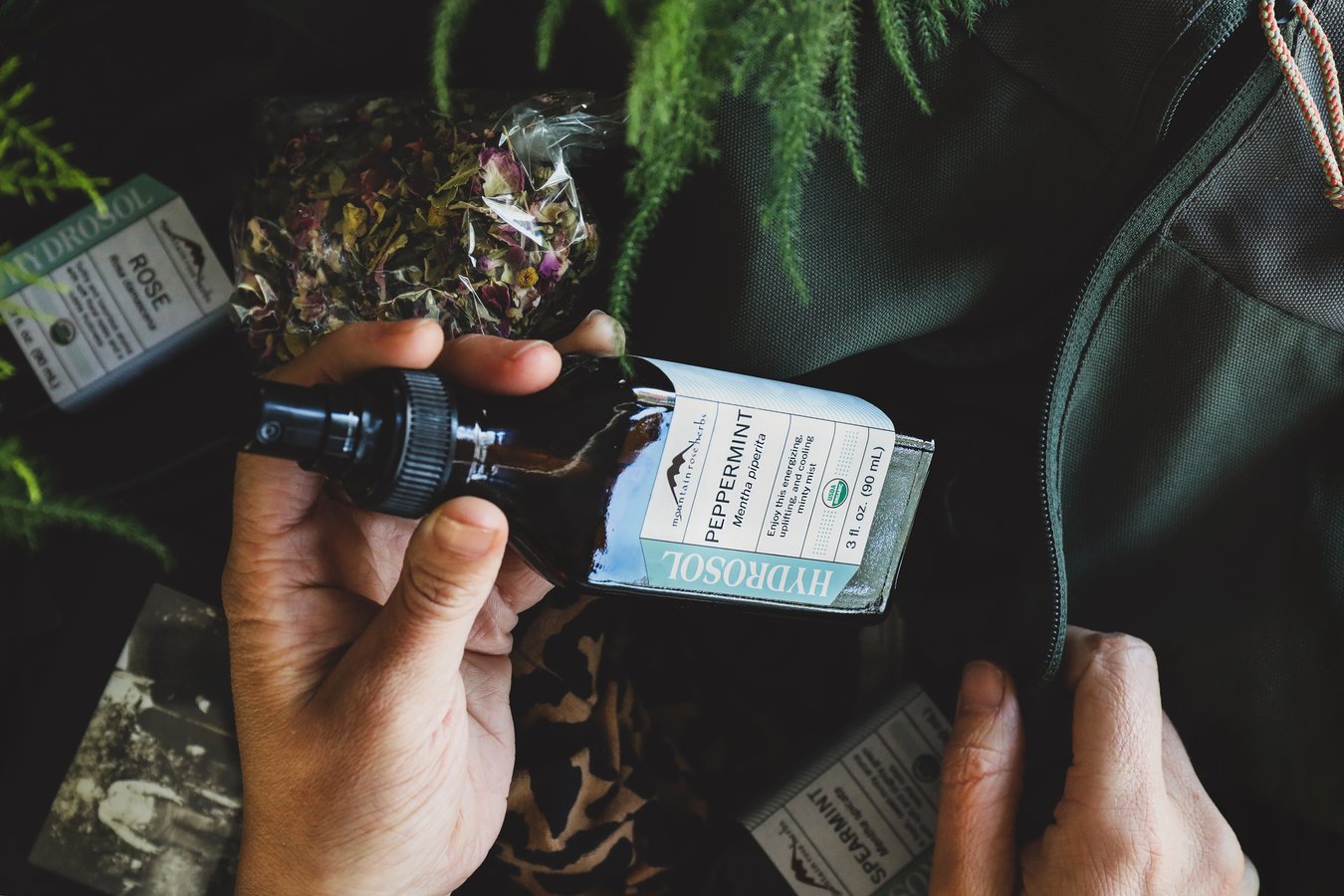
Water
- Keep rose, mint, and other hydrosols in your fridge for misting on your body throughout the day. Keep some in your run-bag as well, for some medicinal botanical decadence during potential evacuations.
- A neti pot or nasal rinse can help clear smoky accumulations from nasal passages. Follow with oil.
- Take a bath with decongesting and calming herbs like lavender, eucalyptus, or chamomile. Soak in an infusion of the tea. If you don’t have access to a bathtub, then a foot soak can also be a lovely way to enjoy the therapeutic benefits of water during fiery times. Include herbs, and perhaps Epsom salts too!
Interested in learning more from Jiling Lin?
Check Out Her Upcoming Events!
You may also be interested in:
- Nourishing Classical Chinese Herbs to Add to Soup
- East Asian Herbal Liniment Recipe
- Classical Chinese Formula for Summer Wellness
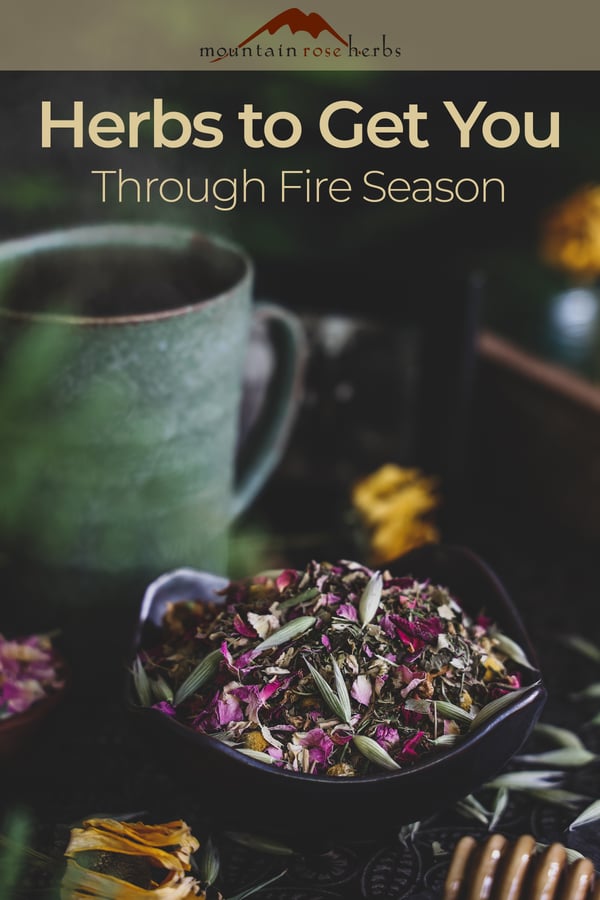
*The statements in this blog have not been evaluated by the Food and Drug Administration. These products are not intended to diagnose, treat, cure, or prevent any disease. We recommend that you consult with a qualified healthcare practitioner before using herbal products, particularly if you are pregnant, nursing, or on any medications. For educational purposes only.










